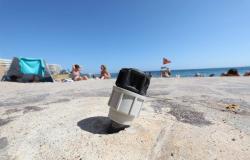Financing the ecological transition becomes the biggest macroeconomic challenge for Morocco by 2030, with a cost of more than 5% of GDP per year. If the private sector is called upon to play its role, it is essential, according to a note from the Rabat regional economic service reporting to the French embassy, to direct public finances towards decarbonization. To ensure this shift, Morocco is mobilizing all the levers at its disposal: environmental taxation, business and public organization programs, green budget, sustainable public procurement and green bonds.
Since June 2017, Morocco has adopted an ambitious “transition towards a green and inclusive economy” program: the National Strategy for Sustainable Development 2030 (SNDD). In addition, the Kingdom has developed a “Low Carbon Development Strategy for 2050”, establishing the main orientations of the Moroccan economy and society in terms of decarbonization between 2020 and 2050.
In terms of reducing greenhouse gas (GHG) emissions, the note recalls that Morocco’s nationally determined contribution (NDC) was increased in 2021 and now results in a GHG emissions reduction target of 45.5% by 2030 (unconditional target of 18.3%) compared to the status quo. Rabat maintains its ambition on the green transition, including in the energy field (target of installed renewable electricity capacity at 52% in 2030) and has expressed its interest in the establishment of a carbon pricing system.
Decarbonization of the Moroccan economy requires massive investments
The green transition constitutes for Morocco both an imperative, particularly in a context of acute and structural water stress, and an opportunity. With its exceptional potential for producing renewable electricity at very low cost, Morocco aims not only to ensure the transformation of its production system, but also to support the European Union in achieving its decarbonization objectives, reads: we in the note.
The introduction from January 1, 2026 of the EU’s carbon border adjustment mechanism (CBAM) crystallizes this imperative of transformation for a Moroccan economy which carries out two thirds of its trade with the EU. This could be a differentiator for Moroccan exports compared to other countries in the region which are less proactive in terms of decarbonization.
The note also highlights that financing the ecological transition is the Kingdom’s main macroeconomic challenge for the coming years. The World Bank estimates that the implementation of Morocco’s CDN will require a financial effort of $78.8 billion over the period 2020-2030, or $7.2 billion on average per year (or 5.2% of the GDP). In a context of pressure on public finances linked to the implementation of major national projects, the role of the private sector will be crucial for the success of this ecological transition, but there is no doubt that public finances will play a major role in move it forward.
Environmental taxation: Morocco is engaged in a movement of profound reforms
If the polluter pays principle is clearly cited in the Environmental Charter, the notion of environmental taxation has not yet seen the light of day in the Moroccan general tax code, even if the latter as well as the Tax Law contain taxes on the environmental base, it is noted.
Likewise, the note specifies, the year 2024 will be marked by a major initiative in terms of taxation with the conduct of a study with a view to the establishment of a carbon tax in Morocco. The design of the said tax through, in particular, the delimitation of its perimeter and the determination of the modalities of its application and the measurement of its social acceptability will be done in consultation with the ministerial departments concerned, and via the technical support of international financial institutions. .
Towards mobilizing all green public finances
In 2023, Morocco, according to the note, has in fact committed to the French Development Agency through a public policy budget loan amounting to 80 million euros, accompanied by an assistance program technical (supported by Expertise France), to guide public action on the issues of ecological and energy transition, notably via five areas of cooperation: a green budget (with the creation of an ad hoc report annexed to the finance bill ), the integration of climate considerations into public procurement, the development of a green bond issuance framework, the sustainable management of public companies and establishments and the development of a taxonomy of green finance.
In addition, the investment plans of large companies and public agencies will be the main vectors for achieving the objectives of decarbonization of the energy mix, firstly the OCP group (2023-2027) whose program is endowed with 130 billion dirhams and the Moroccan Agency for Sustainable Energy (MASEN) which plans nearly 8.7 billion dirhams in investments in 2024.






